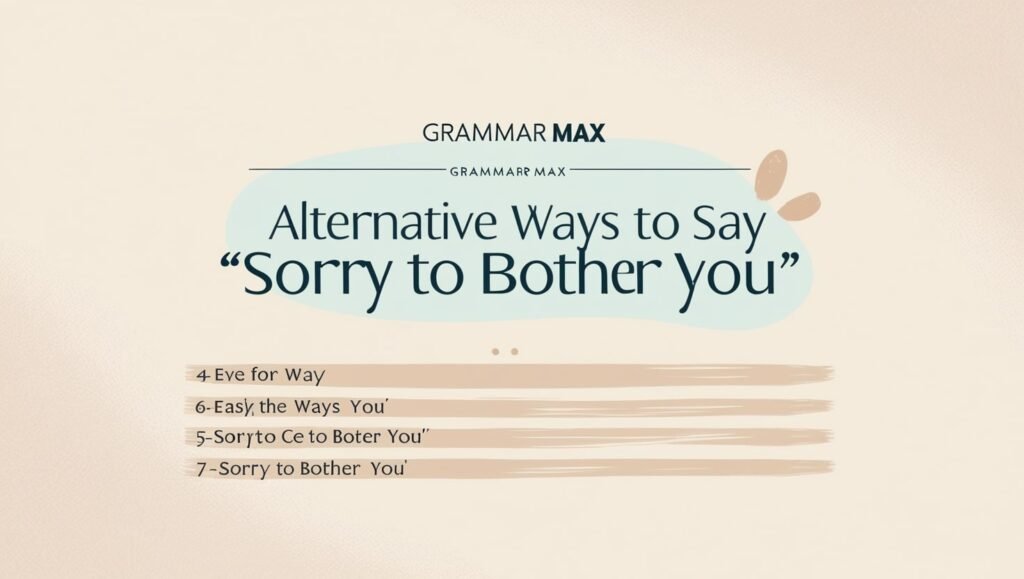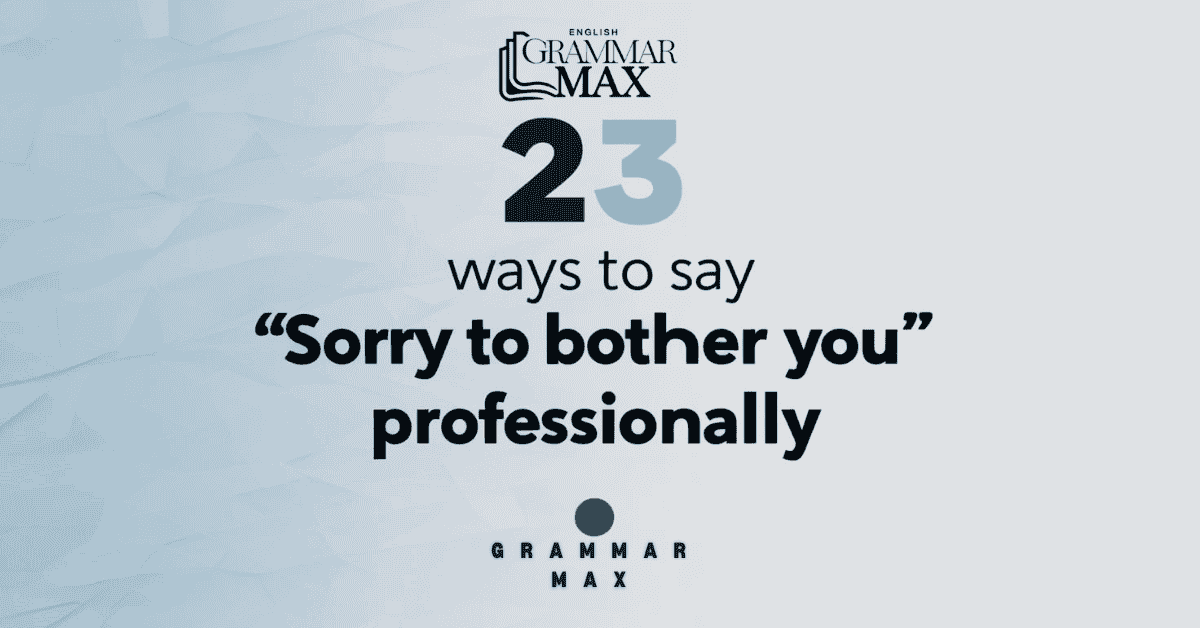In the professional world, clear and respectful communication is vital. When you need to interrupt someone, whether it’s to ask a question or seek assistance, knowing how to apologize politely with phrases like “Sorry to Bother You” is essential. Not only does it reflect your courteous approach and respect for time, but it also helps maintain positive relationships in the corporate environment.
How do you say sorry for bothering you professionally? There are several polished ways to express a polite interruption while acknowledging the other person’s busy schedule. Below are 23 ways to say “Sorry to bother you” professionally. Each method is accompanied by its best use case and scenario examples.
Alternative Ways to Say “Sorry to Bother You”
Here are 23 Alternative ways to say “Sorry to bother you”:
- I apologize for the interruption.
- Sorry for bothering you, but I have a quick question.
- I hope I’m not disturbing you, but I need your expertise on this matter.
- Apologies for bothering you, but could you assist me with this?
- I understand this is a busy time, but I need a moment of your attention.
- Excuse the interruption, but may I ask for your guidance?
- I hate to intrude, but this requires your immediate attention.
- I hope this doesn’t take too much of your time, but I need your input.
- I know your time is valuable, but I have an urgent request.
- I appreciate your time, but could you please help me with this task?
- I apologize for taking you away from your work, but this is quite urgent.
- I hate to disturb you, but I need your advice on this matter.
- Sorry to trouble you, but I need a quick decision.
- I recognize this may not be the best time, but I would appreciate your help.
- I know you’re busy, but your input would be greatly valued.
- I hope I’m not interrupting, but I would value your insight.
- I’m sorry to interrupt your work, but this is time-sensitive.
- I apologize for the inconvenience, but I require your prompt assistance.
- I regret the disruption, but I need your advice on this important issue.
- Pardon the interruption, but your input is crucial for this matter.
- I’m sorry to impose, but I would appreciate your help with this task.
- I realize this is a busy time for you, but I need your assistance with this matter.
- I don’t mean to take too much of your time, but this is important.

1. “I apologize for the interruption.”
This is a professional and formal way to acknowledge that you are intruding.
Best Use: When addressing senior staff, clients, or external partners in an email or during a meeting.
Scenario Example: Subject: Quick Update on the Project Timeline Dear Mr. Smith, I apologize for the interruption, but I wanted to provide a quick update on the project’s progress. We are currently ahead of schedule by two days, and I will share the full report by the end of the day. Thank you for your time. Best regards, Jane Doe
